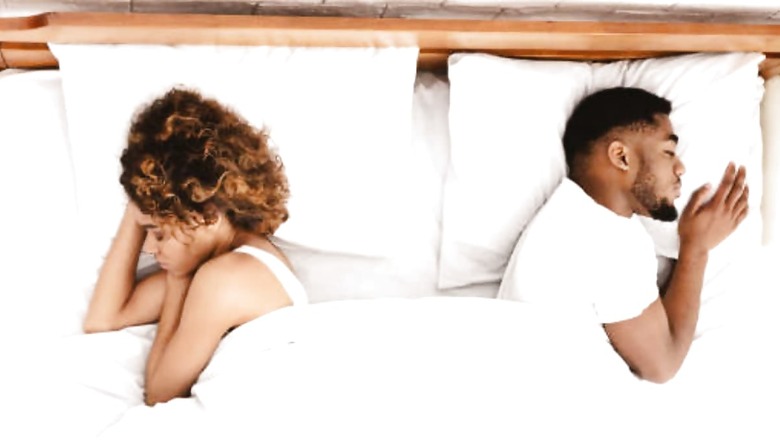
views
For many, the term ‘Sleep Divorce’ might suggest relationship issues, but that’s not the case. ‘Sleep Divorce’ simply means that partners choose to sleep in separate rooms instead of sharing a bed. This practice is often adopted when couples experience decreased sleeping compatibility. Various factors can contribute to this decision, such as excessive snoring, restlessness or differing sleep schedules.
We all know how frustrating it can be to miss out on a good night’s sleep. Even the smallest annoyance can set you off. This lack of sleep can strain your relationship, leading to what’s known as a ‘sleep divorce.’
According to a study by the American Academy of Sleep Medicine (AASM), more than one-third of people say they occasionally or consistently sleep in different bedrooms. “We know that poor sleep can worsen your mood, and those who are sleep-deprived are more likely to argue with their partners. There may be some resentment toward the person causing the sleep disruption which can negatively impact relationships,” Dr Seema Khosla, pulmonologist and spokesperson for the AASM said.
Meanwhile, other experts believe that in order to receive the benefits of this practice, one must approach it with no preconceptions and an open mind.
Reasons Why Couples Opt For Sleep Divorces:
- Snoring Problems:People who snore loudly can disrupt their partner’s sleep, perhaps resulting in poor sleep quality.
- Different sleeping schedules: Almost every organisation now seeks workers who can work flexible hours, which may result in an unhealthy sleeping routine. If your partner’s working hours differ from yours, sleeping in the same room becomes impossible because one person is working while the other is trying to sleep.
- Restless sleepers: If one spouse frequently tosses and turns or suffers from restless leg syndrome, the other’s sleep may be disrupted.
- Children or pets: If one partner’s sleep is routinely disturbed by children or pets, sleeping in separate rooms may be an option.
- Sleeping patterns:Some people sleep with their lights on, some want a certain mattress, or some prefer a specific room temperature, making it difficult for the other partner to comply every time.
Would you like to try Sleep Divorce to enhance your relationship?
















Comments
0 comment